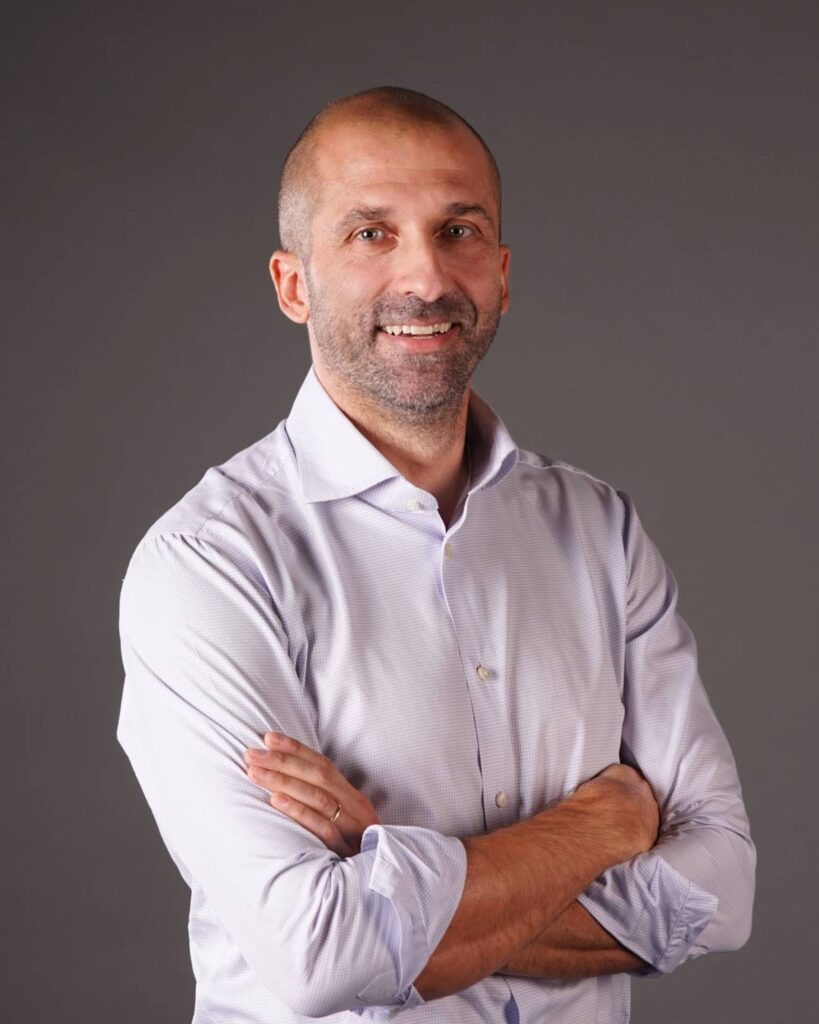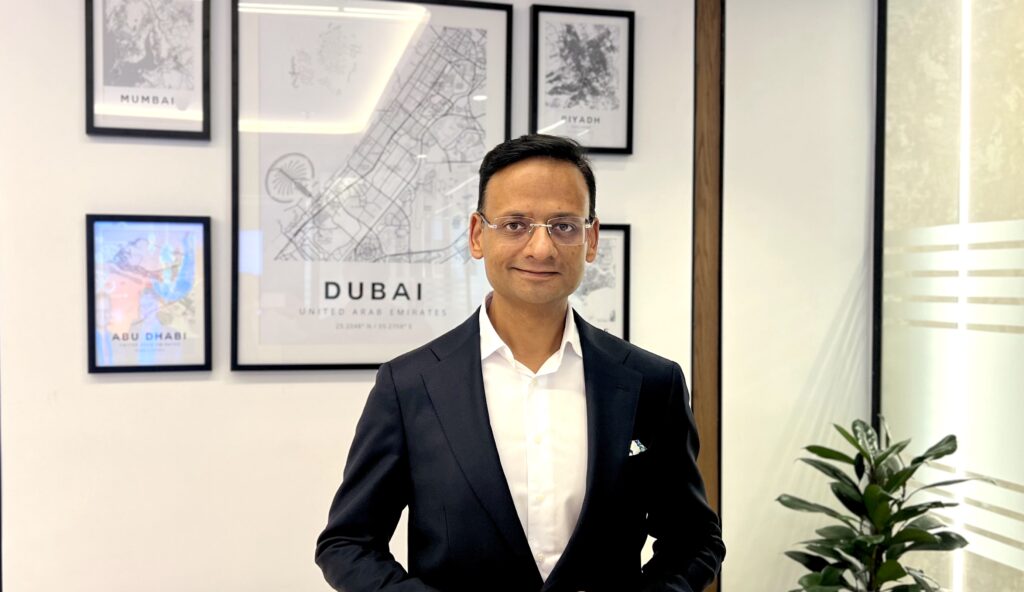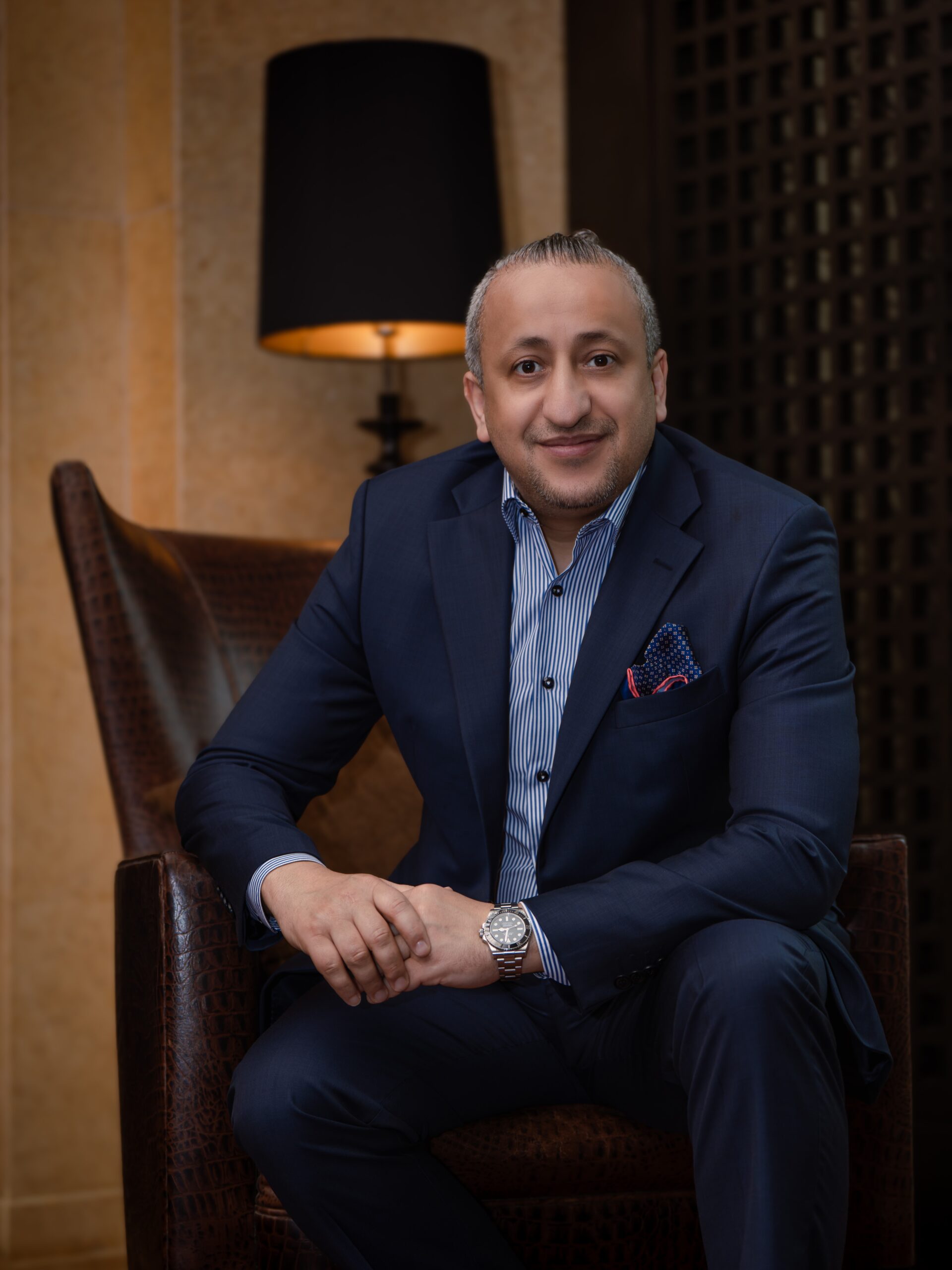Financial News
AI – The value architect for Banking

By: Vishal Khurana, Senior Vice President Middle East & Africa, BUSINESSNEXT
This article does not discuss the potential of Artificial Intelligence (AI). I think much water has flown under that bridge, and the consensus worldwide vouch for its colossal power. Rightly put across via an estimate, the potential impact of AI for the Middle East amounts to US$320 billion by 2030! The UAE government also recognizes AI as one of the key tools to achieve its objectives of the UAE Centennial 2071.
UAE has witnessed a fintech revolution of sorts propelled by the digital revolution over the last decade. AI is being leveraged across the back end to the front end of the banking tech stack for various use cases, some more mature than others. Chatbots, biometrics, anti-fraud & risk assessment, complex legal and compliance workflows, credit underwriting, intelligent contracts infrastructure, and KYC.
Practical AI use-cases
AI can be used to build a sustainable, real-time, hyper-personalized, and structured banking ecosystem. Talking of specifics, from delivering augmented analytics on customer data, enabling automation, and building intelligent customer 360 for hyper-personalization, AI can be used for fraud monitoring and real-time issue resolution!
• Facilitating hyper-automation for loan or credits decision to deliver efficiency with minimum to zero errors, compliance risks, and quicker decisions.
It can help eliminate the risk of duplicate data entry, prepopulate customer information from multiple systems seamlessly, assist in accurate information capture, and speed up the identity verification process. Beyond this, it can cull out specific customer patterns to evaluate creditworthiness and customer lifetime value and also alerts if there is a probability of default!
AI/ML models can power intelligent, customizable journeys and lending workflows, and enable hyper-automation through robotic process automation (RPA) for speeding up operations, reducing operating risks, and keeping cost to serve within tight limits.
• Transformative customer experience vows to be the key differentiator amongst enterprises across. For customers, convenience and quick redressal are given, however a wow service goes beyond this. Tailored financial products or services that match their financial goal, Voice stimulated banking service for efficiency, a completely digitized documentation process, auto-filling and data extraction with OCR capabilities, 24X7 omnichannel access to the banking services etc are fast-turning benchmarks. Banks delight customers with speed, transparency, payment flexibility, and convenience.
• Avoiding risks but boosting instant decisions via AI-driven models that enable banks with automated underwriting and faster disbursals. The model analyses the risk in each customer transaction, thereby giving a holistic risk profile, translating into wider coverage and inclusion. Hyper automation automates identify verification and its validation. Smart, configurable business rule engines backed by automated underwriting allow for disbursals in minutes.
Getting Ready for The Autonomous Banking
In the digital-first world, AI is only set to chart newer benchmarks for banking, an era of Autonomous banking – a ‘Zero Ops Model’ where BFSI delivers services with no human intervention and in real-time! These banking services would have to be intelligently automated by reassembling, rearranging, and reorienting banking tech stacks to design customer journeys and better anticipate customer needs intelligently. The suitable suite of composable tools can enable a robust zero-ops model and reinvent customer expectations!
While this is a futuristic idea, the evolving infrastructure capabilities and adoption of innovative and disruptive technology aided by a progressive fiscal environment at the helm in UAE can be a reality very soon!
Financial
MultiBank Group and Khabib Nurmagomedov Launch an Exclusive Worldwide Multi-Billion-Dollar Joint Venture to Build the World’s First Regulated Tokenized Sports Ecosystem

Multibank Group, the financial derivatives institution, has entered into an exclusive worldwide multi-billion-dollar joint venture with global sports icon and undefeated UFC champion Khabib Nurmagomedov (29-0) to create a first-of-its-kind regulated ecosystem connecting global finance, sports and technology.
The partnership will culminate in the creation of a multi-billion-dollar joint venture, MultiBank Khabib LLC, uniting two global powerhouses: MultiBank Group, a leader in regulated financial excellence, and Khabib Nurmagomedov, undefeated in the octagon and whose influence extends far beyond sport. The company will operate from MultiBank Group’s headquarters in Dubai, building a worldwide network of high-end sports ventures and real-world digital assets. This structure fulfills the vision of MultiBank Group Founder and Chairman, Naser Taher, for an exclusive global joint venture, granting MultiBank exclusive rights to develop and promote projects under the Khabib Nurmagomedov brand name, including the development of 30 state of the art Khabib gyms, Gameplan and Eagle FC brands.
The entire venture is backed by MultiBank Group’s regulated digital ecosystem and powered by its cornerstone $MBG Token being the driving force behind its expanding portfolio of real-world-asset (RWA) technologies and initiatives.
Naser Taher, Founder and Chairman of MultiBank Group, stated: “From the UAE, we are shaping a new blueprint for the business of sport through the regulated tokenization of real-world sports assets (RWSA). Together with Khabib Nurmagomedov, and powered by our ecosystem token, $MBG, we are uniting finance and athletics into a single transparent, technology-driven ecosystem — one built on trust, innovation, and the strength of the MultiBank framework. This initiative proudly aligns with the UAE’s vision of becoming a global hub for digital asset innovation and world-class sports.”
Khabib Nurmagomedov added: “This partnership with MultiBank Group is built on shared values of strength, respect, and discipline. Together with Multibank, we are building real global opportunities that go beyond sport, empowering athletes, and fans through a regulated and innovative digital ecosystem. This is only the beginning.”
Financial
Edenred UAE strengthens market leadership with financially inclusive payroll solutions, C3Pay serving 2.5 million users

Edenred, a leading digital platform for services and specific purpose payments and the undisputed market leader in salary processing and financial inclusion for the underbanked in the UAE, continues to reinforce its leading position in payroll card solutions, value-added financial services, and compliance-first innovation under the leadership of newly appointed Managing Director Claudio Di Zanni.
As the first company authorised by the Central Bank of the UAE to process WPS salaries, Edenred UAE has long positioned financial inclusion as the foundation of its offer in UAE — ensuring that access to financial services isn’t an added benefit, but a guaranteed outcome of getting paid.
Trusted by both large enterprises and a growing base of SMEs, the backbone of the UAE economy, Edenred UAE now serves more than 15,000 corporate clients, 2.5 million cardholders, and partners with over 10 banks and 20 financial institutions. Demand has been strong in sectors such as manufacturing, construction, and facility management—where reliability and seamless execution are critical.
Edenred UAE salary cards, C3Pay, powered by RAKBANK and part of the Mastercard network, can be used globally. A key driver of Edenred’s adoption success is its unmatched expertise in on-site training at worker accommodations, which helps large enterprises efficiently onboard thousands of employees. This ensures that workers understand how to activate their cards, utilise app features, and engage with key financial tools.

Claudio Di Zanni, Managing Director, Edenred Middle East, said: “Edenred UAE has set the benchmark for payroll and financial access in the region with digital innovative solutions, great ambitions and internationally committed teams. Our ambition now is to extend that lead by deepening trust with our clients, scaling services that matter to end users, and ensuring full compliance in a fast-evolving regulatory landscape. With unmatched reach, an expanding client base, and a proven model for financial inclusion, we are ready to shape the next phase of the region’s salary card ecosystem — developing its full potential and contributing to giving workers who were previously excluded from the financial system a secure, transparent, and dignified way to manage their money.”
Edenred UAE remains the reference in payroll solutions, as it continues to scale high-impact services, deepen banking partnerships, and reinforce its role as the benchmark for secure, compliant, and ethical financial access in the UAE and beyond. With a sharpened focus on innovation and strengthened leadership, it is entering a new chapter of platform excellence as the backbone of financial access for the UAE’s workforce.
Financial
Dhruva urges UAE firms to focus on data sovereignty in e-Invoicing transition

The 2026 mandate is an opportunity for businesses to align compliance with stronger data governance standards
With the UAE’s mandatory eInvoicing framework set to launch in 2026, Dhruva urges taxpayers to move beyond data residency considerations and focus on the critical issue of data sovereignty when selecting accredited service providers (ASPs). When adopting any cloud solution, it’s crucial to take the UAE National Cloud Security Policy into consideration, which provides a comprehensive checklist for cloud customers. This policy details necessary arrangements with cloud service providers, outlines contract requirements and sets cloud security requirements and enforcement measures.Dhruva is a leading tax advisory firm specializing in VAT, corporate tax, transfer pricing, and international taxation in the Middle East.
The eInvoicing rollout, based on the OpenPeppol five-corner model, will route all business-to-business (B2B) and business-to-government (B2G) invoices through ASPs that validate, exchange, and report tax-relevant data directly to the Federal Tax Authority (FTA). This shift makes the question of where data lives and who ultimately controls it – a matter of legal, operational, and financial consequence.

Commenting on the development, Nimish Goel, Partner and Head of GCC, Dhruva Consultants, said: “Businesses cannot afford to mix data residency with sovereignty. Hosting tax data within UAE data centres is necessary, but it does not, by itself, guarantee compliance or protection. True sovereignty means that encryption keys, administrative controls, and audit logs remain fully under UAE jurisdiction and cannot be accessed by foreign authorities. For taxpayers, this distinction is not technical—it is a fundamental risk-management decision.”
Dhruva highlights that this distinction is becoming urgent for three reasons. First, the UAE has enacted a robust Federal Data Protection Law (PDPL) and sector-specific rules that demand explicit safeguards on cross-border data flows. Second, with eInvoicing deadlines approaching, taxpayers must evaluate how each provider’s hosting model aligns with UAE data hosting requirements, sovereignty and National Cloud Security Policy laws. Finally, the operational reality is that migrating data and applications between clouds is not seamless. Factors such as data gravity, proprietary platforms, and audit trail integrity make switching providers slow, risky, and expensive.
“E-invoicing will not only redefine how businesses transact with government authorities, but also how they safeguard their most sensitive tax and financial records,” Goel added. “Companies need to recognise that the choice of ASP is a long-term strategic decision. The location of the cloud operator, the jurisdiction under which they fall, and the location of their control plane and encryption keys all impact compliance and data security far more than the physical location of the server rack.”
Dhruva advises taxpayers to approach ASP selection with a structured due-diligence process aligned with the policy for cloud customers in the UAE. This policy covers key domains such as governance, data location and sovereignty, interoperability, security incident and access management, data confidentiality, architecture and infrastructure companies should ensure that all storage, backups, and logs are held within UAE borders, that operational control and key management remain in UAE jurisdiction, and that providers comply with the UAE’s Peppol interoperability standard. Audit logs should be immutable, recovery sites must be located in the country, and exit strategies need to be documented and tested, with transparency on egress costs.
“Taxpayers cannot treat this as a simple IT procurement,” Goel emphasized. “It is a compliance and sovereignty choice that will determine their risk exposure for years to come. The time to ask these questions is now—before companies find themselves locked into providers that may not meet their future regulatory and operational needs.”
-

 Tech News1 year ago
Tech News1 year agoDenodo Bolsters Executive Team by Hiring Christophe Culine as its Chief Revenue Officer
-

 VAR7 months ago
VAR7 months agoMicrosoft Launches New Surface Copilot+ PCs for Business
-

 Tech Interviews2 years ago
Tech Interviews2 years agoNavigating the Cybersecurity Landscape in Hybrid Work Environments
-

 Tech News4 months ago
Tech News4 months agoNothing Launches flagship Nothing Phone (3) and Headphone (1) in theme with the Iconic Museum of the Future in Dubai
-

 Tech News2 years ago
Tech News2 years agoBrighton College Abu Dhabi and Brighton College Al Ain Donate 954 IT Devices in Support of ‘Donate Your Own Device’ Campaign
-

 Editorial12 months ago
Editorial12 months agoCelebrating UAE National Day: A Legacy of Leadership and Technological Innovation
-

 VAR1 year ago
VAR1 year agoSamsung Galaxy Z Fold6 vs Google Pixel 9 Pro Fold: Clash Of The Folding Phenoms
-

 Cover Story9 months ago
Cover Story9 months agoUnifonic Leading the Future of AI-Driven Customer Engagement














